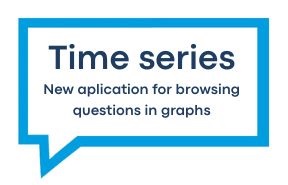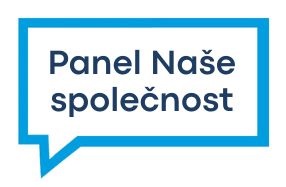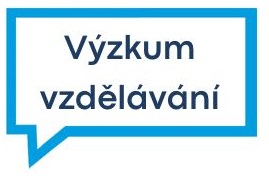Confidence in top politicians
At present it is president Václav Klaus, who is viewed as the most trustworthy person among our top politicians. He enjoys confidence of seven out of ten respondents and since our last survey in October of last year his credibility has grown of 14 % points together with parallel drop of 13 % points as far as the number of people, who do not trust him, is concerned. Václav Klaus has for the first time reached the first rank on our imaginary rank, outrunning the permanently highly evaluated minister Gross.
Marriage – Yes or No?
The results of the Public Opinion Research Centre survey shows that 70 % of single women and 69 % of single men would like to get married in the future. 12 % of single women and 6 % of single men decided not to conclude a marriage in their future life. The most frequently named reasons for getting married were “children” (66 %) and the opinion that "two is better than one” (34 %), a quarter of respondents consider taking marriage vows to be “obvious and normal”.
Citizens on the election to the European Parliament
In January 2004, 60% of Czech citizens expressed willingness to participate in the election to the European Parliament. On the other hand, a quarter of Czech voters do not want to vote. The remaining 15% of respondents were still undecided. The declared willingness to participate in the election to the European Parliament does not match the willingness to participate in an election to the Chamber of Deputies.
Government evaluation
January survey of CVVM focused – among other issues – on the evaluation of Vladimír Špidla’s coalition government. In this respect it was investigated the citizens’ satisfaction with the declared government programme, government activities, its communication with the wide public and its members. Majority of the respondents expressed discontent in all the monitored aspects. Relatively the highest level of satisfaction concerns the declared programme, which was approved by two fifths of the interviewees, while almost a half of them (48 %) declared discontent with it.
The Reform of Public Funds as Viewed by the General Public
Some measures aimed at the elimination of tax evasion or other forms of economic crime such as alcohol stamps (71%) and the ban on the sale of alcohol and cigarettes in market places (68%), property assessment (59%) and the ban on payments in cash from a particular amount and higher (51%) and the introduction of cash registers (58%) enjoy a relatively strong or strongly prevailing support. As far as the changes in the tax rates are concerned, the general public would not object if the duty on cigarettes (66% for) or alcohol (63% for) were to be increased.
Evaluation of government work and parliamentary opposition in the Czech Republic, Poland, Hungary and Slovakia.
In January 2004 the work of the government was evaluated positively by 27 % of the respondents and negatively by 66 %. Only one year ago this proportion of positive and negative answers was almost the opposite: in January 2003 the government was evaluated positively by 48 % and negatively by 39 % of interviewees. The substantial drop in government work evaluation occurred in between January and June 2003.
The Attitude of the General Public to the 2004 State Budget
The January census of the CPOR surveyed the satisfaction of the public with the approved state budget. Questions were aimed both at the satisfaction with the fact that the Czech Republic has an approved state budget for 2004 and also at the formulation of the budget. The survey showed that the general public’s attitude to the fact that the budget had been approved was relatively positive. Only 11% of Czechs considered this fact as being bad, contrary to 42% who thought it was good.
Confidence in constitutional institutions
According to the survey of constitutional institutions realised in mid-January, the highest level of confidence of Czech citizens belongs to the president – he is trusted by 72 % of the respondents. The government enjoys confidence of more than a third of the respondents (37 %). People show the lowest level of confidence in the Senate (20 %) and the Chamber of Deputies (26 %). Regional councils are trusted by 41 % and local councils by 61 % of citizens.
Party preferences in January 2004
All respondents having the right to vote were asked an open question (i.e. without a list of political parties being used) investigating which party they would vote for if an election to the Chamber of Deputies took place the following week. The structure of the answers given is summarised in the table.
The question ‘Imagine that an election to the Chamber of Deputies is held next week. Would you participate?’ was answered yes by 70% of those surveyed having the right to vote (‘definitely yes’ by 31% and ‘probably yes’ by 39%), while 22% said no (13% ‘probably not’ and 9% ‘definitely not’) and 8% did not know.
What We Dislike Most about the Behaviour and Character of People
In December 2003 Public Opinion Research Centre also included in its survey two open questions, where respondents named what they disliked most about human character and behaviour of people. The results of the survey show that as to the human character respondents dislike pretentiousness, lying and jealousy most, and with respect to the behaviour of people the first spots were occupied by pretentiousness, lying and aggressiveness.
Opinions on Health Care in the Czech Republic and Hungary
Czech citizens rate the health care system of their country in a more favourable way than Hungarians, but simultaneously they view it significantly more critically than a year ago. At the present, 34 % of them are satisfied with the health care system in the CZ, on the other hand 36 % feel dissatisfaction with it. Every second person is content with the actual medical care, the share of those dissatisfied represent approximately one fifth of the population above 15 years of age.
Page 212 of 240







